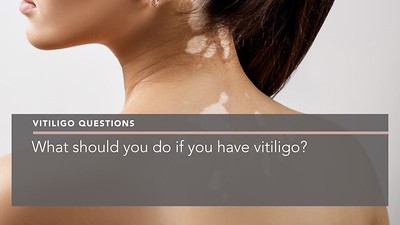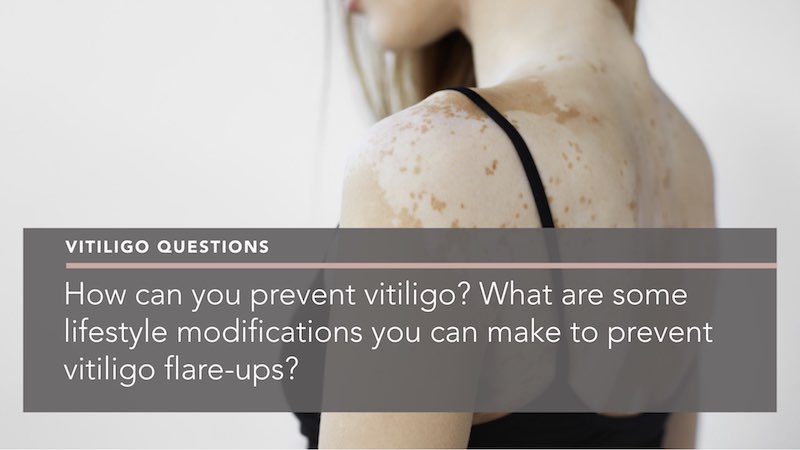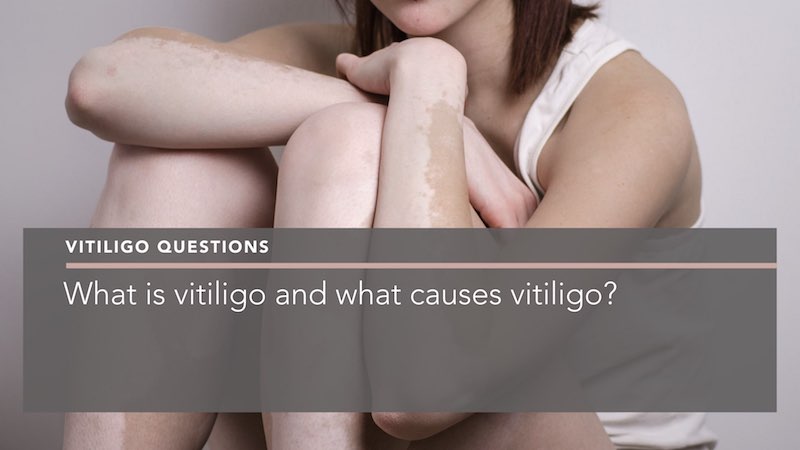Interview transcription:
We interviewed Penelope Pratsou to learn what the best treatment for vitiligo is.
What is the best treatment for vitiligo and can you reverse it?
Penelope Pratsou: I would say it’s very difficult to reverse vitiligo because it is so unpredictable. We’re not sure when it will stop, or if it will stop and what the impact of the treatment is going to be.
When I see someone with vitiligo, I will explain what the problem is and that it is challenging to know when it’s going to decide to slow down. We do have a few treatments that we can offer, but our treatments are based on reversing the process in the areas affected. I might not be able to reverse it in those areas fully, but there are things that we can certainly try.
Can you regain your pigment in those areas of white skin or is it white for good?
Penelope Pratsou: Yes, there are treatments that we can use and more often than not, I would recommend some topical preparations. That generally involves a strong steroid ointment in the first place. We would need to discuss how to use it and how long you would use it for. If there is an improvement, then we can stop if the areas and colour have completely come back, or we can start and stop the treatment in a safe way so that you don’t lose the effect of the treatment. Other treatments can be used.
There are also steroid-sparing ointments, particularly for those sensitive areas, for example, on the face. Vitiligo can affect the face, the eyelids, the neck or the hands, and we can use what we call, calcineurin inhibitors. It’s a group of ointments with the most common one being Protopic, otherwise known as tacrolimus, which can be very helpful and quite safe in the long-term in those sensitive areas.
If you do have more widespread vitiligo, then it might be that light therapy can be used, otherwise known as phototherapy. In addition to that, at any point in treatment, we could decide that you might need some cosmetic camouflage, which acts as a form of treatment.
There is an excellent service known as Changing Faces, run by specialist nurses who can provide you with emotional support. They can also test out different colours of foundation, cosmetic camouflage, that is as close as possible a match to your skin tone. You might choose to use that on a daily basis or if you have an important meeting coming up or some important event, like a wedding, that can be very helpful indeed.
If you notice that you have any of the symptoms or conditions that we’ve just discussed, we invite you to book a consultation with Dr Penelope Pratsou. She’ll be able to assess your situation and give you a personalised treatment plan.

About the author
Dr Penelope Pratsou | Consultant Dermatologist
MBChB, MRCP (UK) (Dermatology)
I’m Dr Penelope Pratsou, a skilled independent Consultant Dermatologist based in Berkshire. I have specialist expertise in the diagnosis and management of all skin cancers, and in performing mole checks. I’m a trained skin surgeon and remove skin cancers, moles, skin tags, cysts and warts.
I also have invaluable experience in dealing with all skin conditions, from the common skin complaints of acne, rosacea, eczema and psoriasis, to the rarer and more complex skin problems, having seen it all through years of NHS work.
After I obtained my Membership to the Royal College of Physicians, I undertook rigorous specialist training in dermatology, before being appointed as a Consultant Dermatologist at the Royal Berkshire Hospital, Reading. There, I helped set up and lead a busy clinic for the diagnosis and treatment of suspected skin cancer. I was also actively involved in supervising and training both dermatology and GP trainees.
Alongside my increasingly busy private practice, I have maintained an NHS practice in Oxford in order to continue to engage with challenging cases and to develop my specialist interest in skin allergy.




